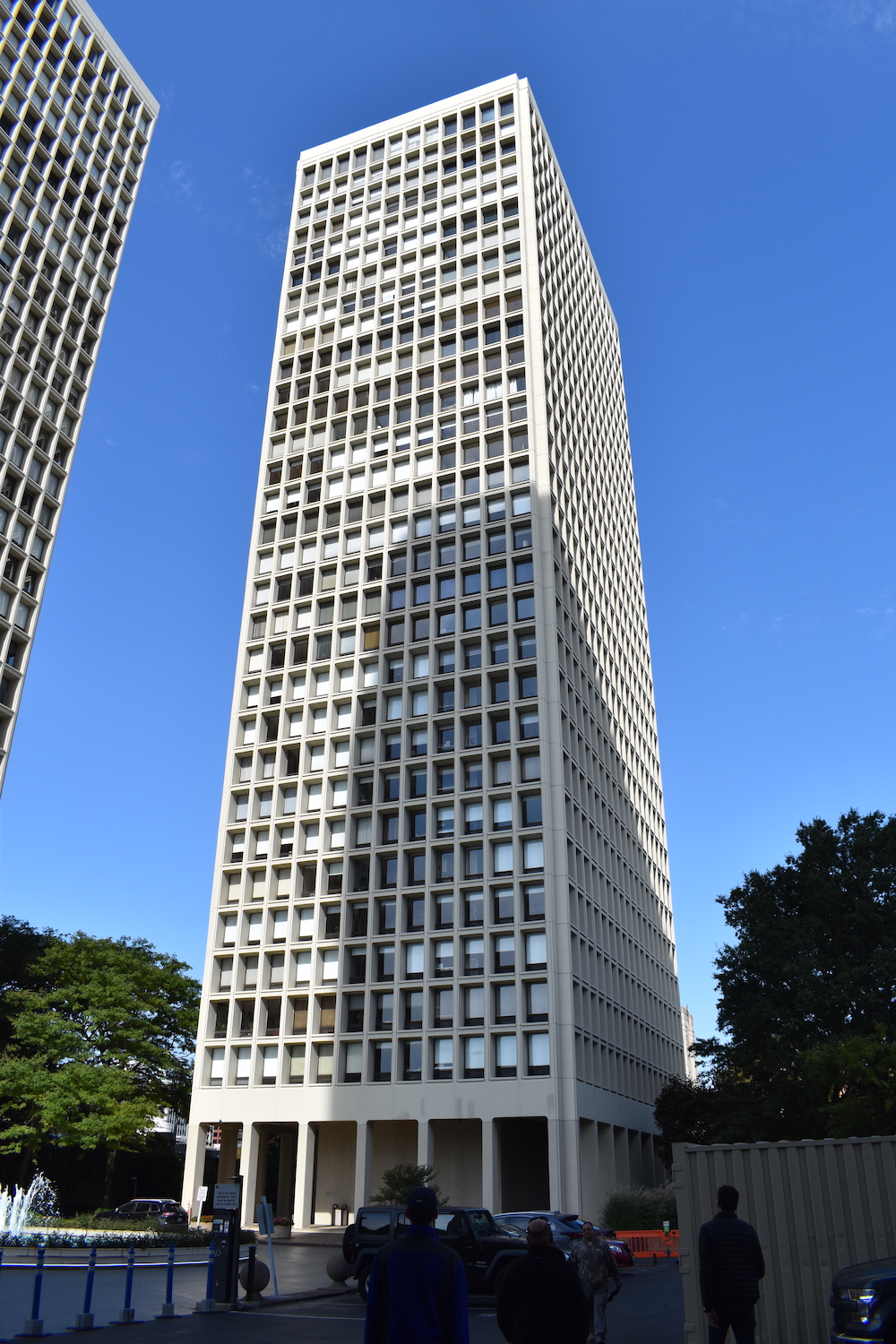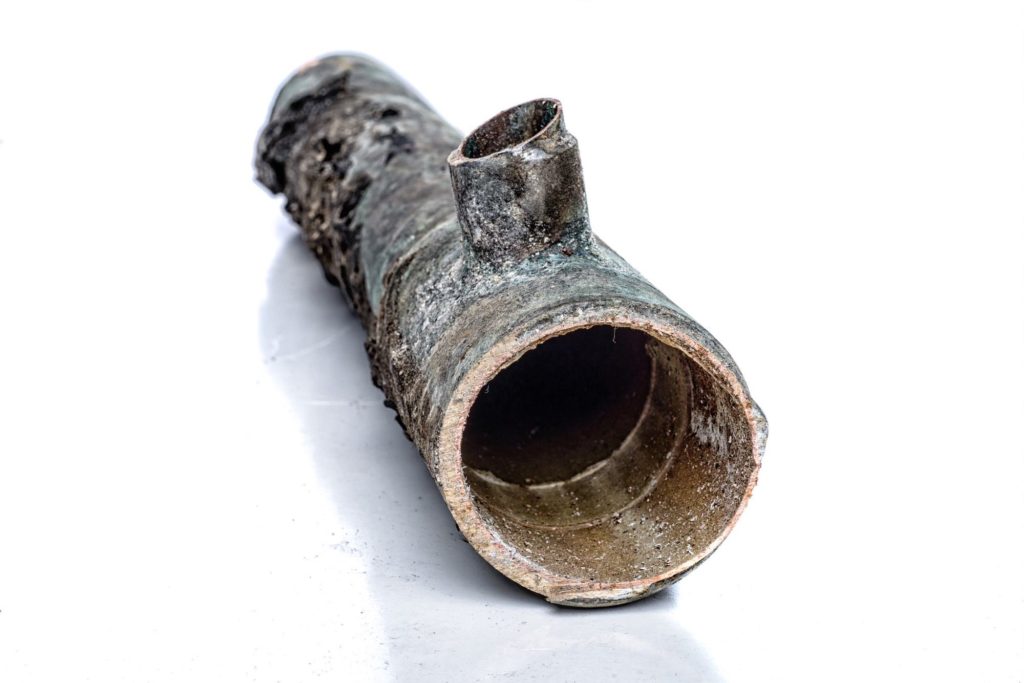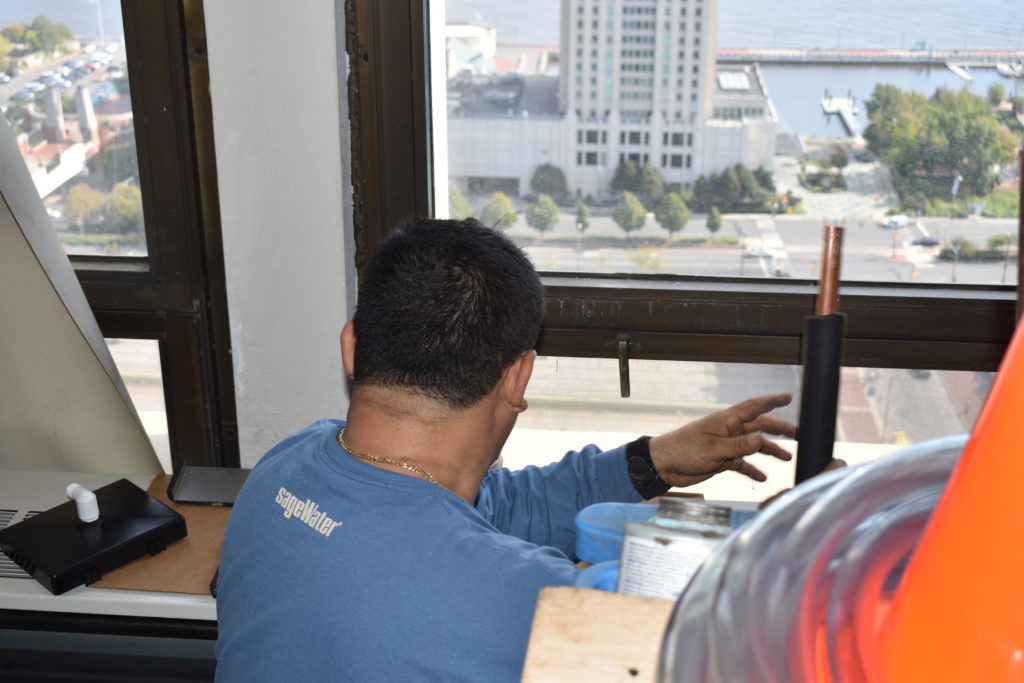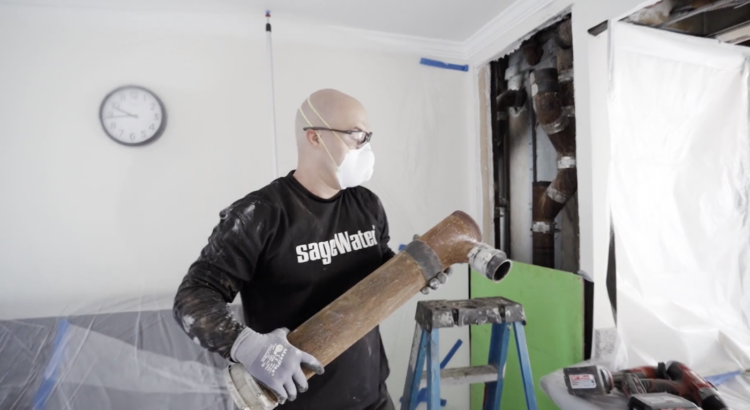How to Decide WHEN to Repipe Your Community
As a pipe replacement contractor, it would be easy to tell everyone that after their first leak, it’s time to replace their entire piping system. Reality paints a different picture however, and knowing when it’s time for a pipe replacement is a subjective and difficult decision to make; pushing it to the top of the list for many AOAOs as their number one plumbing dilemma.
Ideally, when a community starts to have leaks, two things should happen. First, and most obviously, the leak should be repaired. Any licensed plumber or qualified maintenance technician can handle this, depending on the size and location of the leak. Second, and typically missed, is a thorough investigation into why the pipe leaked. If the leak was due to the poor initial installation of a particular fitting, then fixing that one joint will probably solve your problem for years to come. However, if the pipe failed due to age related issues, it’s time for a system wide assessment to determine the estimated remaining usable life of your plumbing.
For a relatively small fee, fitting extractions and lab tests can determine everything from the pace of corrosion to pipe wall thickness, and should give your community valuable information regarding your current state and options moving forward including whether or not your pipes need immediate attention or whether more time is available before replacement is required. Also, this engineering report can be a helpful tool when communicating with your owners about the need/urgency of maintaining you piping systems and the corresponding investment required to properly maintain your community and property values.

However, because of the price and complexity of a full piping system replacement, even if you have 10 or 20 years left on your plumbing system, you need to start planning ahead now. Reserve studies frequently exclude pipe replacement, or if it is included, they often vary wildly regarding what it may cost. In the case of a full system repipe, starting to reserve 10-20 years ahead should not be out of the question.
But even with an assessment and careful planning, knowing when to pull the trigger on a repipe can be difficult. Answering key questions about the timing of other maintenance projects and community investments, the impact of increased annual dues or a special assessment on unit owners, your ability to take out a loan to fund the project, and your willingness to put up with continued leaks, repair costs, and plumbing downtime all weigh into the decision of “when” you need to replace your pipes.
Unfortunately, its not a one size fits all solution, and every community is different. The most important thing is to talk about it. Have your maintenance manager come discuss the state of your plumbing at your next board meeting, have your current plumber provide their perspective based on work they have done at your community, or get a repipe company to come take a look and provide some free advice. Simply getting it out in the open, and starting to talk about it, is an important first step.

 It’s also important to educate yourself on the planning process and your community bylaws. Do you have a community manager who can oversee a project of this magnitude, or do you need to hire an owners’ representative or 3rd party construction manager to help you? Do you have floor plans, or will you need to commission a new set that contractors can use to bid for the work? Are you required by your bylaws to get three bids? What is resident owned versus community owned? Do you have a line of credit, or a relationship with a bank, that you can talk to about funding the project? Answering all these questions takes time, and while there may not be a perfect time to decide to repipe your community, waiting too long and then finding you have to go through all these steps while water is pouring into your building is most certainly not the right time!
It’s also important to educate yourself on the planning process and your community bylaws. Do you have a community manager who can oversee a project of this magnitude, or do you need to hire an owners’ representative or 3rd party construction manager to help you? Do you have floor plans, or will you need to commission a new set that contractors can use to bid for the work? Are you required by your bylaws to get three bids? What is resident owned versus community owned? Do you have a line of credit, or a relationship with a bank, that you can talk to about funding the project? Answering all these questions takes time, and while there may not be a perfect time to decide to repipe your community, waiting too long and then finding you have to go through all these steps while water is pouring into your building is most certainly not the right time!
While there is no magic crystal ball that can tell you exactly when to repipe your community, for those that have gone through it, no one ever complained about repiping too early. But those that waited too long can tell many stories about catastrophic floods, losing insurance coverage, not being financially prepared, and extensive community backlash over plumbing “emergencies” that could have been avoided with a more thoughtful and proactive approach.
The best advice, by far, is to plan early and use qualified experienced resources throughout the process. It’s better to start communicating, and to start saving, as soon as you start to have problems. That way, you can re-assess your situation each year. Have the plumbing problems gotten worse? Have we saved enough money? Do people know this is eventually coming? At a minimum, after several years of planning ahead and communicating regularly, no one will be surprised when the time finally comes to make the decision. Ultimately, ensuring community-wide understanding and agreement is often the best indicator for completing a successful pipe replacement project; helping to ensure your top plumbing dilemma becomes your biggest plumbing success!


